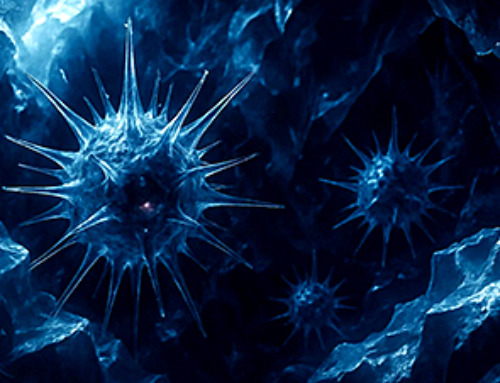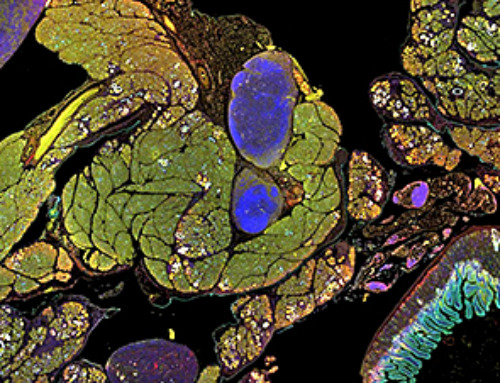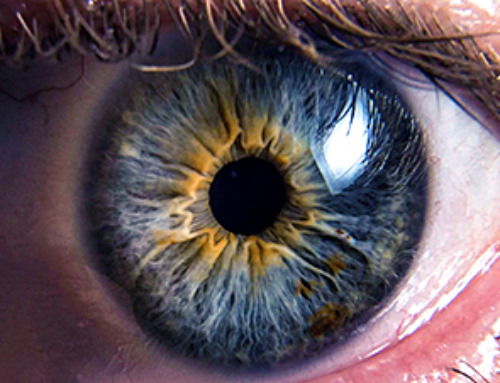Research indicates that while the most severe effects of SARS-CoV-2 were observed in patients with acute COVID-19, individuals who experienced milder cases and were not hospitalized also reported symptoms of memory loss and attention deficits lasting over 18 months post-infection.
Memory loss and attention deficit are common complaints among severe COVID-19 survivors. However, these and other cognitive impairments have also been observed in patients with mild cases more than 18 months after infection, according to a study by researchers at the University of São Paulo (USP) in Brazil.
An article on the study is published in the journal BMC Psychology. The findings highlight the need for more comprehensive rehabilitation to address the enduring cognitive impacts of long COVID, the authors write.
Data collected from 302 volunteers pointed to cognitive impairment in 11.7% of mild patients, 39.2% of moderate patients, and 48.9% of severe patients.
“Although the damage done by the disease in terms of memory loss, attention deficit, and slow processing increases in proportion to its severity, the same problems affect a far from a negligible number of people – around 100 in our study – who had mild or moderate COVID,” said Antônio de Pádua Serafim, first author of the article and a professor at the Institute of Psychology (IP-USP).
The results of the study, which was funded by FAPESP, evidence the potential impact of neuroinflammation due to infection by SARS-CoV-2.
“Memory loss and attention deficit are known to be associated with post-intensive care syndrome due to intubation under deep anesthesia. Some of the data analyzed in the study, however, was from patients who didn’t require intensive care or didn’t even have sufficient symptoms to be hospitalized and nevertheless exhibited memory loss and attention deficit. The findings therefore opened our eyes to the question of neuroinflammation due to COVID-19,” Serafim said.
Memory and attention are important cognitive functions that affect people’s day-to-day lives. Reflecting this, participants in the study with poor memory and attention test scores reported difficulties with recalling words or performing routine activities, such as forgetting pots on the stove or failing to pick children up from school.
“Hierarchically speaking, attention is the primary function in all mental activity, and this explains why attention deficit has such as huge impact on people’s daily lives. High-quality attention is required to think and act in various ways at the same time. Impairment of attention in turn affects memory. In some cases, attentional activity is so dispersed that each new stimulus [or impending activity] dissolves, so that the person can’t remember what they were doing. This also affects processing activity, which involves rapid decision-making based on information,” he said.
Cognitive rehabilitation
According to Serafim, all the evidence has shown for some time that SARS-CoV-2 can affect the central nervous system as well as the lungs, kidneys, heart, and muscles, but the extent of the damage it may cause is poorly understood. “We don’t know if cognitive impairment due to COVID-19 is permanent, and we’re currently evaluating ways to intervene in this process,” he said.
In partnership with other researchers at USP, Serafim is developing programs to try to mitigate the cognitive losses caused by COVID-19. The aim is to find out whether techniques such as neurostimulation and neurofeedback can attenuate or reserve memory loss and attention deficit.
“Both are non-invasive techniques that aim to improve brain functions by means of neuromodulation, which can stimulate the connections among neurons in the brain [synapses]. We have only case studies so far. For example, in the case of a physician who was in the intensive care unit for 34 days, we conducted a neurofeedback protocol often used to study patients with attention deficit disorder, and he made a good recovery. But that was an isolated case,” he said.
“Based on the knowledge we’ve acquired so far regarding cognitive stimulation and rehabilitation techniques, I believe it may be possible to obtain an improvement in neural connectivity by means of brain training to stimulate overall cognitive ability. The severe phase of the pandemic is over, but the sequelae persist. So it’s not a closed case. Many people were infected, and many have sequelae of this kind. However, we don’t have an effective program to intervene not only in the emotional aspects but also in the cognitive difficulties resulting from COVID-19.”
Reference: “Cognitive performance of post-covid patients in mild, moderate, and severe clinical situations” by Antonio de Pádua Serafim, Fabiana Saffi, Amanda Rafaella A. Soares, Alessandra Mara Morita, Mariana Medeiros Assed, Sandro de Toledo, Cristiana C. A. Rocca and Ricardo S. S. Durães, 26 April 2024, BMC Psychology.
DOI: 10.1186/s40359-024-01740-7
The study was funded by the São Paulo Research Foundation.
News
Studies detail high rates of long COVID among healthcare, dental workers
Researchers have estimated approximately 8% of Americas have ever experienced long COVID, or lasting symptoms, following an acute COVID-19 infection. Now two recent international studies suggest that the percentage is much higher among healthcare workers [...]
Melting Arctic Ice May Unleash Ancient Deadly Diseases, Scientists Warn
Melting Arctic ice increases human and animal interactions, raising the risk of infectious disease spread. Researchers urge early intervention and surveillance. Climate change is opening new pathways for the spread of infectious diseases such [...]
Scientists May Have Found a Secret Weapon To Stop Pancreatic Cancer Before It Starts
Researchers at Cold Spring Harbor Laboratory have found that blocking the FGFR2 and EGFR genes can stop early-stage pancreatic cancer from progressing, offering a promising path toward prevention. Pancreatic cancer is expected to become [...]
Breakthrough Drug Restores Vision: Researchers Successfully Reverse Retinal Damage
Blocking the PROX1 protein allowed KAIST researchers to regenerate damaged retinas and restore vision in mice. Vision is one of the most important human senses, yet more than 300 million people around the world are at [...]
Differentiating cancerous and healthy cells through motion analysis
Researchers from Tokyo Metropolitan University have found that the motion of unlabeled cells can be used to tell whether they are cancerous or healthy. They observed malignant fibrosarcoma [...]
This Tiny Cellular Gate Could Be the Key to Curing Cancer – And Regrowing Hair
After more than five decades of mystery, scientists have finally unveiled the detailed structure and function of a long-theorized molecular machine in our mitochondria — the mitochondrial pyruvate carrier. This microscopic gatekeeper controls how [...]
Unlocking Vision’s Secrets: Researchers Reveal 3D Structure of Key Eye Protein
Researchers have uncovered the 3D structure of RBP3, a key protein in vision, revealing how it transports retinoids and fatty acids and how its dysfunction may lead to retinal diseases. Proteins play a critical [...]
5 Key Facts About Nanoplastics and How They Affect the Human Body
Nanoplastics are typically defined as plastic particles smaller than 1000 nanometers. These particles are increasingly being detected in human tissues: they can bypass biological barriers, accumulate in organs, and may influence health in ways [...]
Measles Is Back: Doctors Warn of Dangerous Surge Across the U.S.
Parents are encouraged to contact their pediatrician if their child has been exposed to measles or is showing symptoms. Pediatric infectious disease experts are emphasizing the critical importance of measles vaccination, as the highly [...]
AI at the Speed of Light: How Silicon Photonics Are Reinventing Hardware
A cutting-edge AI acceleration platform powered by light rather than electricity could revolutionize how AI is trained and deployed. Using photonic integrated circuits made from advanced III-V semiconductors, researchers have developed a system that vastly [...]
A Grain of Brain, 523 Million Synapses, Most Complicated Neuroscience Experiment Ever Attempted
A team of over 150 scientists has achieved what once seemed impossible: a complete wiring and activity map of a tiny section of a mammalian brain. This feat, part of the MICrONS Project, rivals [...]
The Secret “Radar” Bacteria Use To Outsmart Their Enemies
A chemical radar allows bacteria to sense and eliminate predators. Investigating how microorganisms communicate deepens our understanding of the complex ecological interactions that shape our environment is an area of key focus for the [...]
Psychologists explore ethical issues associated with human-AI relationships
It's becoming increasingly commonplace for people to develop intimate, long-term relationships with artificial intelligence (AI) technologies. At their extreme, people have "married" their AI companions in non-legally binding ceremonies, and at least two people [...]
When You Lose Weight, Where Does It Actually Go?
Most health professionals lack a clear understanding of how body fat is lost, often subscribing to misconceptions like fat converting to energy or muscle. The truth is, fat is actually broken down into carbon [...]
How Everyday Plastics Quietly Turn Into DNA-Damaging Nanoparticles
The same unique structure that makes plastic so versatile also makes it susceptible to breaking down into harmful micro- and nanoscale particles. The world is saturated with trillions of microscopic and nanoscopic plastic particles, some smaller [...]
AI Outperforms Physicians in Real-World Urgent Care Decisions, Study Finds
The study, conducted at the virtual urgent care clinic Cedars-Sinai Connect in LA, compared recommendations given in about 500 visits of adult patients with relatively common symptoms – respiratory, urinary, eye, vaginal and dental. [...]





















